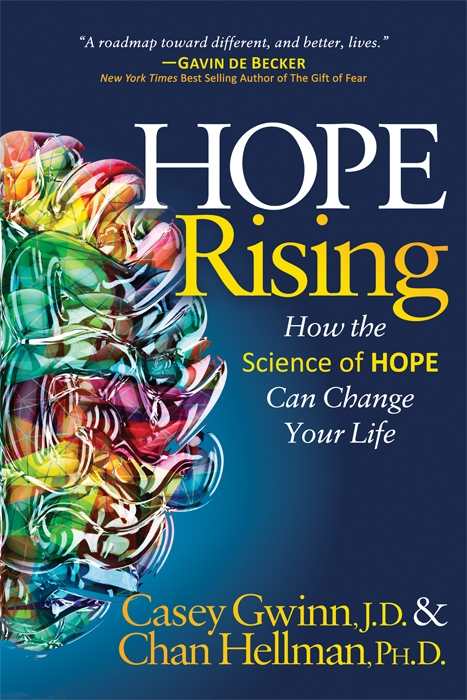Hope Rising
How the Science of Hope Can Change Your Life
For all those who have come to think of hope as an impotent wish, a vague, flimsy idea that things will be better in the future, this book brings good news: Hope is real. It’s measurable. It has life-saving power. And it can be learned.
Casey Gwinn and Chan Hellman call hope a science. It’s made of strong stuff, of goals and the willpower and pathways to achieve them. And they report evidence for hope’s power: nearly two thousand studies published over the last twenty years all found hope to be “the single best predictor of well-being compared to any other measures of trauma recovery.”
Having personally experienced hope’s transformative power, Gwinn and Hellman lament the hopelessness they see in America today. They cite reports showing that less than one-half of American children are hopeful and that medical issues and mental illness are on the rise. Domestic violence and mass shootings terrorize homes and communities and, according to CDC estimates, suicide occurs at the rate of one every sixteen minutes.
But there is an antidote to fear and distress: the science and language of hope. Hope Rising is filled with riveting stories of trauma overcome through the power of hope and presents an inspiring vision for a culture of hope that would transform our civil and criminal justice system, prisons, the military, mental health facilities, senior living centers, and schools. Gwinn and Hellman have already seen young lives transformed through Camp Hope, their camping and mentoring program for children impacted by domestic violence.
Maintaining hope in times of crisis is hard work, but it’s worth it. “If you apply the science of hope to your life, it will change you,” they write. “If you embrace the language of hope, you will talk differently, act more intentionally, and live your life with greater purpose than you ever have before.”
Reviewed by
Kristine Morris
Disclosure: This article is not an endorsement, but a review. The publisher of this book provided free copies of the book to have their book reviewed by a professional reviewer. No fee was paid by the publisher for this review. Foreword Reviews only recommends books that we love. Foreword Magazine, Inc. is disclosing this in accordance with the Federal Trade Commission’s 16 CFR, Part 255.

